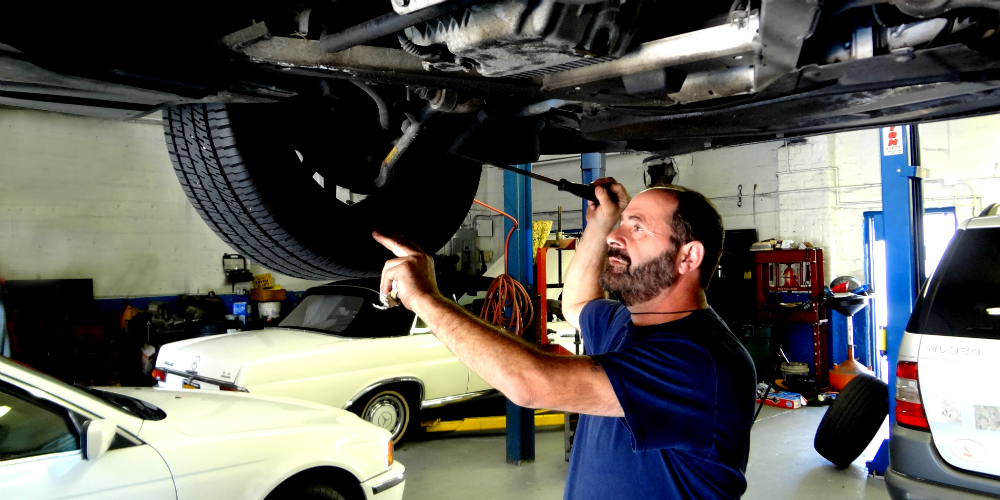All Categories
Featured
Routine cars and truck servicing is an important component of vehicle ownership, however figuring out how commonly to arrange these exams can in some cases be perplexing. Whether you drive a new auto or a high-mileage lorry, remaining on top of maintenance guarantees security, ideal efficiency, and a longer life-span for your automobile. In this short article, we'll explore the variables that influence service intervals and just how you can create a routine that works for you.

- Producer's Guidelines: Your Initial Referral Point. Every cars and truck features a user handbook, that includes the maker's advisable service periods. These guidelines are tailored specifically to your car design and its elements. Usual referrals include:
Oil changes: Every 5,000 to 10,000 miles or 6-12 months, depending upon whether you use standard or artificial oil. Tire rotations: Every 5,000 to 7,500 miles to guarantee also put on and extend tire life. Significant solutions: At turning points like 30,000, 60,000, or 100,000 miles, which might consist of timing belt substitutes, coolant purges, and transmission maintenance. Adhering to the manufacturer's schedule helps maintain your auto's performance and keeps its guarantee legitimate.
- Driving Conditions Matter. How and where you drive dramatically impacts how typically your car requires maintenance. Autos used under "serious driving conditions" may require more regular upkeep. These conditions include:
Constant brief journeys under 10 miles. Driving in heavy stop-and-go traffic. Operating in severe temperature levels (warm or cold) Traveling on messy, sloppy, or uneven roadways. If any of these apply to your everyday commute, take into consideration scheduling more frequent oil adjustments and assessments to stop damage. 3. Modern Qualities: Monitoring Your Vehicle's Health. Numerous modern-day automobiles are outfitted with onboard diagnostics and maintenance tip systems. These functions monitor your lorry's condition in real time and alert you when it's time for maintenance. Take notice of these informs, as they are based upon aspects like gas mileage, engine efficiency, and oil condition.
- Seasonal Maintenance: Be All Set Year-Round. Adjustments in weather can affect your vehicle's efficiency, so organizing seasonal check-ups is an excellent method.
Prior to wintertime, guarantee your battery, tires, and furnace remain in good condition to deal with chillier temperatures. Before summer, check your cooling system, air conditioning, and liquids to avoid overheating. Seasonal maintenance keeps your car dependable and ready for shifting conditions.
- Signs Your Vehicle Requirements Immediate Focus. Often, your automobile may need servicing prior to the scheduled period. Expect the adhering to caution indications:
Weird noises, such as grinding or screeching. Lowered gas efficiency. Control panel warning lights, consisting of the check engine light. Trouble starting the auto or stalling. Attending to these concerns without delay can conserve you from expensive repairs later on.
- Benefits of Staying Regular. Normal servicing isn't nearly following a schedule-- it's an investment in your vehicle's future. It aids:
Keep you and your guests secure. Take full advantage of fuel efficiency. Prevent expensive breakdowns. Extend the life of your vehicle. Increase resale value by maintaining an extensive solution document. Conclusion. Just how commonly should you service your cars and truck? The response depends on your automobile's make, your driving behaviors, and ecological problems.
Latest Posts
Leading Eye Care South - Local Eye Care Specialist: Exceptional Care for Your Eyes.
Eye Care Center South - Local Eye Specialists Near Me: Complete Vision Testing & Care.
Detect the Indication: When to Repair or Change Your Roof
More
Latest Posts
Leading Eye Care South - Local Eye Care Specialist: Exceptional Care for Your Eyes.
Eye Care Center South - Local Eye Specialists Near Me: Complete Vision Testing & Care.
Detect the Indication: When to Repair or Change Your Roof
